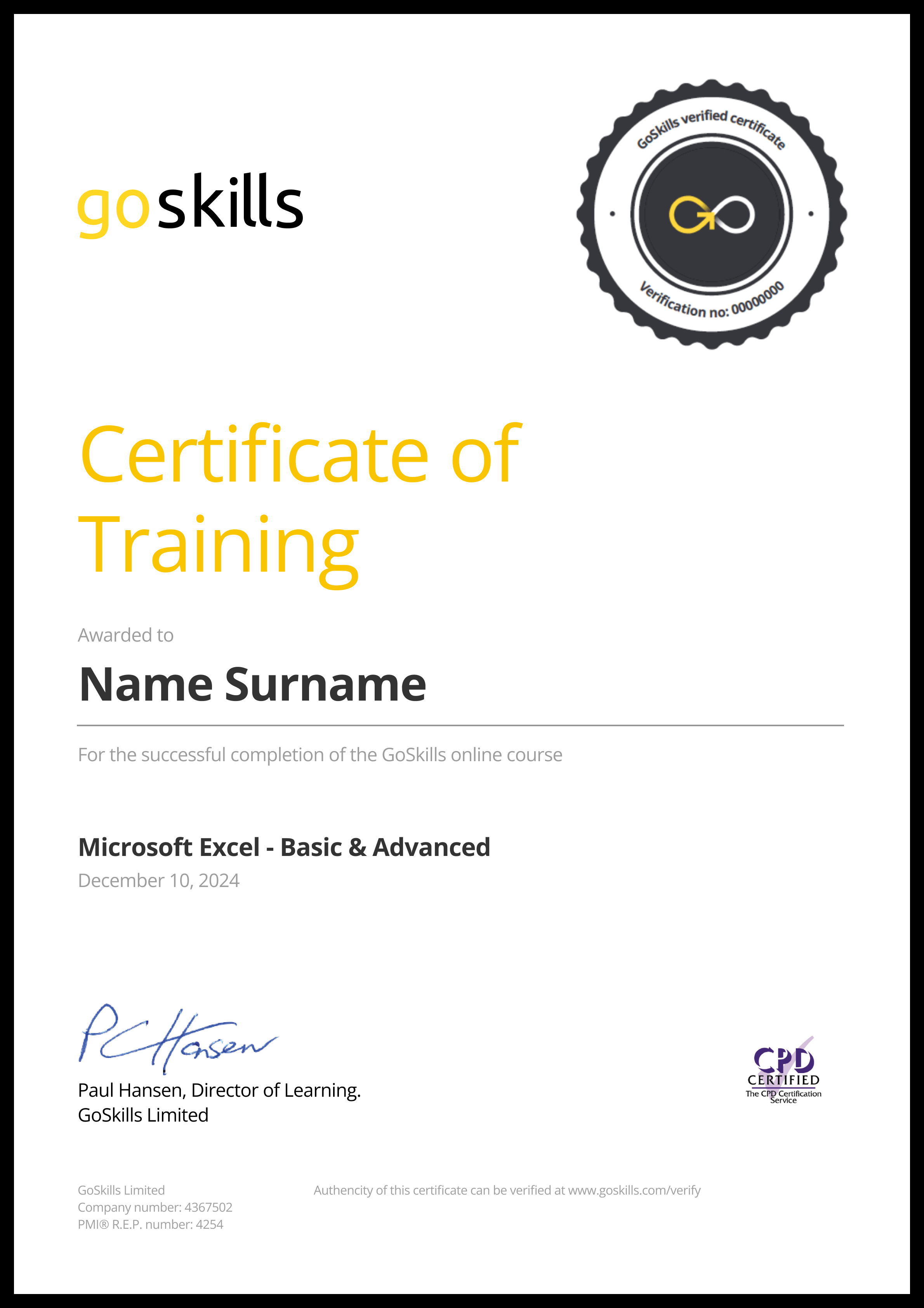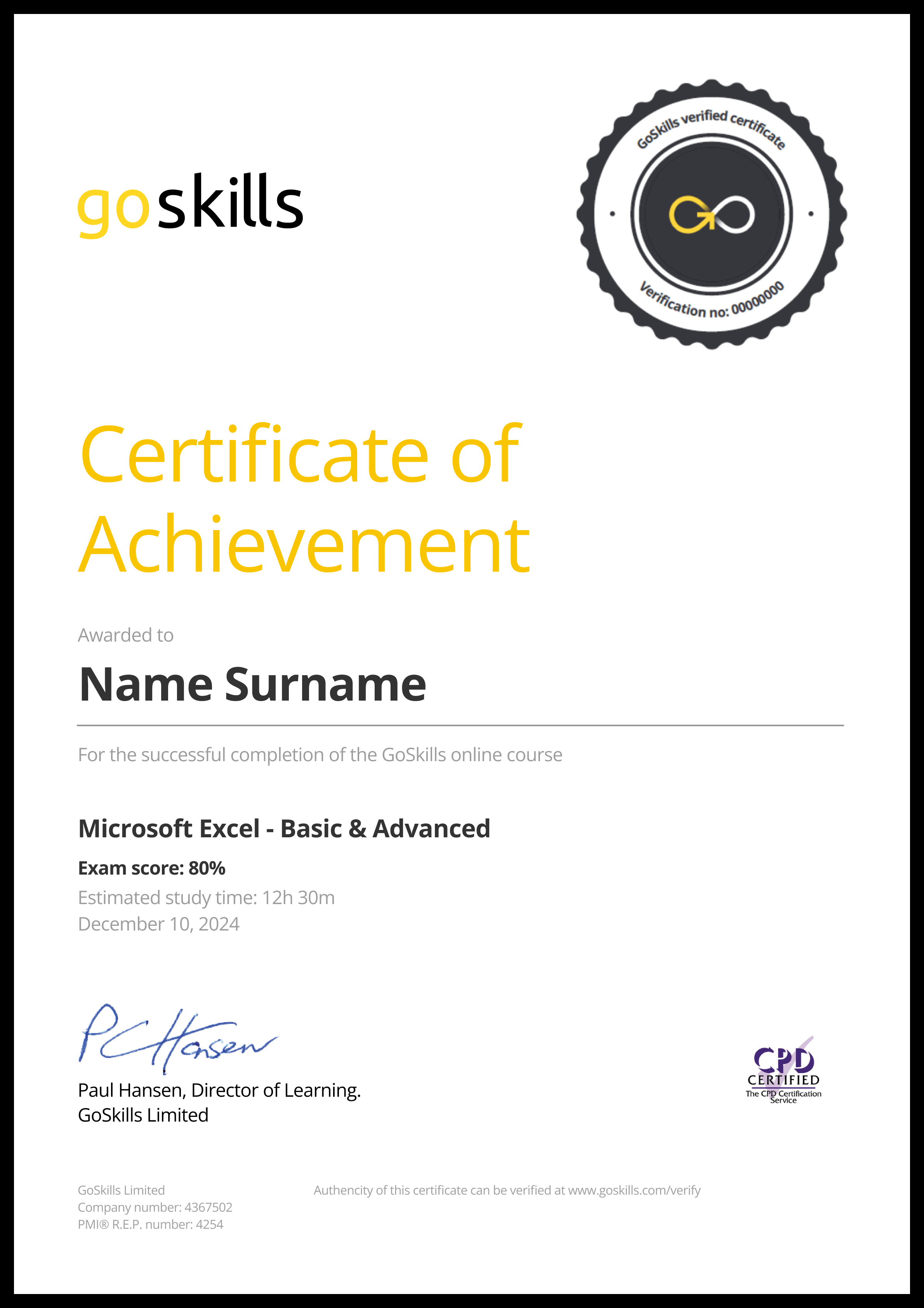Features
Premium video tutorials
Award-winning instructors
Personalized learning
Get certified
Learn at your own pace
Mobile (learn on-the-go)
Unlimited tests and quizzes
Regularly updated content
Overview
Are your business writing skills leaving a lot to be desired? Do you want to write with greater impact, clarity, and efficiency?
Our business writing skills course is the gateway to a whole new world of communication. Whether you are looking to communicate more effectively with customers, or want to write more effective emails and internal communications, this course will elevate you to higher echelons of communication prowess.
In a series of bite-sized, engaging lessons, you will learn to conquer:
- The fundamentals of style, tone, and grammar,
- Writing letters, emails, inquiries, sales, and other professional formats,
- Creating internal business communications, including setting the right tone and writing memos, announcements, and reports,
- Writing for social media and other marketing channels,
- Responding to customer support queries, and
- Writing website essentials, including website and landing page copy, and much more.
By the end of this course, you will be a more confident, effective, and engaging communicator and you will be prepared to use these skills to find a new job, secure a promotion, or improve your performance in your existing role.

- 720p
- 540p
- 360p
- 0.50x
- 0.75x
- 1.00x
- 1.25x
- 1.50x
- 1.75x
- 2.00x
Summary
Instructor
Syllabus
Introduction Free Lesson
1
Introduction to Business Writing Skills
We evaluate the importance of business writing and what will be covered in this course.
Business Writing Basics Free Lesson
1
Communication Basics
2
Verbal vs. Written Communication
3
Writing Style and Tone for Business
4
Scope of Business Writing
5
Punctuation, Grammar, and Spelling
Why are grammar and spelling (still) important, especially in business communication? How can punctuation change meaning?
Business Writing Tools Free Lesson
1
The Role of Email in Business Communication
2
Email Apps and Features
We'll take a look at common email applications in business and their features.
3
Email Content & Etiquette
We'll discuss standard email structure - what to say, how to end your message - as well as using personal vs business accounts, and why it matters.
4
Email Pitfalls & Best Practices
We'll cover email best practices: who to CC/BCC, when to forward, when to email, and when not to email.
5
How to Compose Engaging Letters
We'll examine best practices for message design and how much to include, especially in electronic formats. We'll also discuss how best to use images, links, attachments, and how to make your message stand out.
6
Using Chat and Collaborative Platforms
We'll talk about the differences and how to write for platforms like Slack, Basecamp, and other online collaborative environments.
Internal Communication
1
Office Memorandums
2
Communicating Bad News
3
Recognition and Commendation Letters
What should you consider when commending employees for outstanding performance? We discuss the best practices and how to structure an official letter.
4
Disciplinary & Warning Letters
Turn negative into positive by giving meaningful and effective written feedback on poor employee performance.
5
Communicating With Reports
When is it better to write a report instead of a letter, and how do they differ?
6
Formatting Simple Reports
What should you consider when preparing simple, information-only reports?
7
Preparing Comprehensive Formal Reports
Preparing a formal business report doesn't have to be nerve-racking. Follow these guidelines and you're covered.
External Communication
1
Customer Communication Basics
We examine best practices when communicating general information to someone outside the organization when you are seen as a representative of the organization.
2
Responding to Customer Queries
How should you respond to written neutral requests from customers?
3
Commendations and Complaints
How should you respond to complaints and commendations from someone who used your service?
4
Collection Letters
What approach should you take when you have trouble collecting from customers?
5
Potential Business Contacts
When "cold" contacting someone via email or social media, how do we convey a positive image and increase our chances of getting the business?
6
Social Media Basics
7
Government Organizations and Regulatory Bodies
How should we respond to regulatory bodies when our organization is governed by specific rules and guidelines?
Final Word
1
Privacy & Legal Considerations
How does privacy affect company policies on business communication? What steps can be taken to keep digital and paper documents secure?
2
Golden Rules & Course Takeaways
What are the most important principles to remember in business writing? What emerging trends should we pay attention to?





